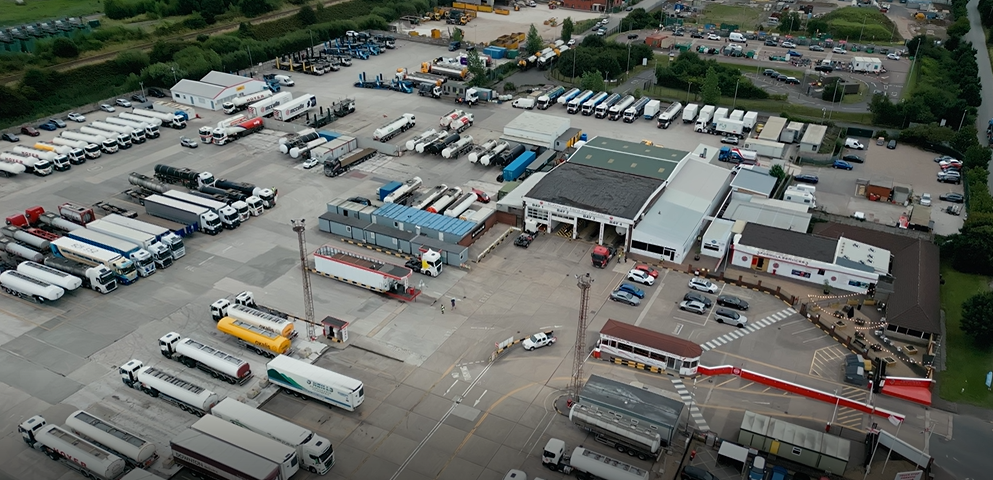
Susie Jones
How can the haulage industry support driver mental health?
Created: 07/10/2024
•
Updated: 10/10/2024
44% of long-haul truck drivers experience symptoms of depression - however, mental health in the haulage industry is often overlooked. The nature of the job plays a pivotal role in driver welfare, with drivers facing long hours on the road and extended periods of isolation. With Mental Health Awareness Day on the 10th of October, how can drivers and the industry look after their welfare?
How can drivers look after their mental health?
Drivers can take several steps to ensure they look after their mental health:
Sleep and rest
Adequate sleep is vital for physical and mental health. As a truck driver, long hours behind the wheel can disrupt a regular sleeping pattern - establishing a routine will improve mood, alertness, and driver well-being.
Hydration and diet
Although difficult on the road, maintaining a well-balanced diet and staying hydrated is critical to avoid energy crashes and mood swings.
Managing stress
Part of the profession as an HGV driver is managing stressful situations - stress management techniques such as time management and relaxation exercises effectively reduce stress levels. Practicing mindfulness, such as meditation and deep breathing, helps maintain a calm mindset.
Physical exercise
Regular exercise is essential for physical and mental health. Simple exercises like walking, cycling, or stretching release endorphins and boost mood. Find out how to stay healthy on the road.
Talking
Truck driving is an isolating job where drivers spend hours without talking to anyone. Staying connected with friends, family, and colleagues through phone calls and video chats provides support and combats feelings of loneliness. Truck stops offer a great opportunity for drivers to talk to like-minded people about the trials and tribulations of the job.
Take breaks
Being behind the wheel for extended periods can be mentally exhausting - taking regular breaks to rest and recharge reduces stress levels. Drivers are under strict regulations regarding regular breaks - learn more about tachograph rules and regulations.
What drivers said
We asked drivers on social media to let us know how they look after their mental health:
Truck Life GB states they "support other drivers through my social media platforms. My inbox is always open for a chat. Whether it's a bit of banter or a general chat, it's the little things that go a long way."
"Podcasts and a great set of mates who know all the ups and downs, as I do with them. At least one of them will be having a worse day than you are." explains trucker Mark.
The "Be A Mate" text service by Mates in Mind allows drivers to talk to trained volunteers 24/7 if they are feeling suicidal, anxious, or overwhelmed. The service is anonymous and does not show up on phone bills. All drivers need to do is test "BeAMate" to 85258 to start the conversation.

What can fleet companies do?
Fleet managers can take several steps to ensure their drivers look after their mental health. Fostering an environment where discussions surrounding mental health are met openly and without judgement can change opinions and stigmas.
Fleets can take the following steps:
Workload
Where possible, reducing driver workload can significantly improve driver well-being.
Support
Regularly communicating with drivers will encourage honest conversations. Providing drivers with a support system will ensure they don't feel alone.
Communication
Communicating effectively regarding any organisational changes will reduce stress levels among drivers.
Culture
Promote a positive working culture that avoids conflict and unacceptable behaviour.
What can truck stops do to help driver mental health?
Truck drivers depend on truck stops for their daily basic needs. They are crucial to improving driver mental health, as they act as a haven for drivers who have spent long, isolated hours behind the wheel. Offering state-of-the-art clean facilities, healthy food options, and a place to socialise allows drivers to relax and unwind.
Truck stops can encourage community by organising social activities and events where drivers can connect with their peers and alleviate feelings of isolation.
How has the driver shortage affected driver mental health?
As of 2023, Europe has over 230,000 unfilled truck driver vacancies - a shortage of this size has increased pressure on those already in the industry.
The rise in e-commerce has added to this pressure - truck drivers must meet tighter delivery schedules and handle higher volumes of goods. A heightened workload and added pressures have impacted driver welfare significantly - with employee turnover rates at their highest.



